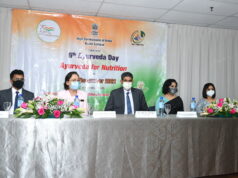SINGAPORE, Aug 13 – A new strategy that cripples the ability of the dengue virus to escape the host immune system has been discovered by A*STAR’s Singapore Immunology Network (SIgN).
This breakthrough strategy opens a door of hope to what may become the world’s first universal dengue vaccine candidate that can give full protection from all four serotypes of the dreadful virus.
The new strategy uncovered in this study overcomes the prevailing challenges of vaccine development by tackling the virus’ ability to ‘hide’ from the host immune system.
 Early studies have shown that a sufficiently weakened virus that is still strong enough to generate protective immune response offers the best hope for an effective vaccine.
Early studies have shown that a sufficiently weakened virus that is still strong enough to generate protective immune response offers the best hope for an effective vaccine.
However, over the years of vaccine development, scientists have learnt that the path to finding a virus of appropriate strength is fraught with challenges. This hurdle is compounded by the complexity of the dengue virus.
Even though there are only four different serotypes, the fairly high rates of mutation means the virus evolve constantly, and this contributes to the great diversity of the dengue viruses circulating globally.
Furthermore, in some cases, the immune response developed following infection by one of the four dengue viruses appears to increase the risk of severe dengue when the same individual is infected with any of the remaining three viruses.
With nearly half the world’s population at risk of dengue infection and an estimated 400 million people getting infected each year, the need for a safe and long-lasting vaccine has never been greater.
Dengue virus requires the enzyme called MTase (also known as 2′-O-methyltransferase) to chemically modify its genetic material to escape detection.
In this study, the researchers discovered that by introducing a genetic mutation to deactivate the MTase enzyme of the virus, initial cells infected by the weakened MTase mutant virus is immediately recognised as foreign.
As a result, the desired outcome of a strong protective immune response is triggered yet at the same time the mutant virus hardly has a chance to spread in the host.
Team leader, Dr Katja Fink from SIgN said that there was still no clinically approved vaccine or specific treatment available for dengue and as such they were very encouraged by the positive results with the novel vaccine strategy.
“Our next step will be to work on a vaccine formulation that will confer full protection from all four serotypes with a single injection. If this proves to be safe in humans, it can be a major breakthrough for the dengue vaccine field,” he said in a statement.
The research done in collaboration with Singapore’s Novartis Institute of Tropical Diseases (NITD) and Beijing Institute of Microbiology and Epidemiology is published in the PlosPathogens journal, and is also supported by Singapore STOP Dengue Translational and Clinical Research (TCR) Programme grant.
– BERNAMA










